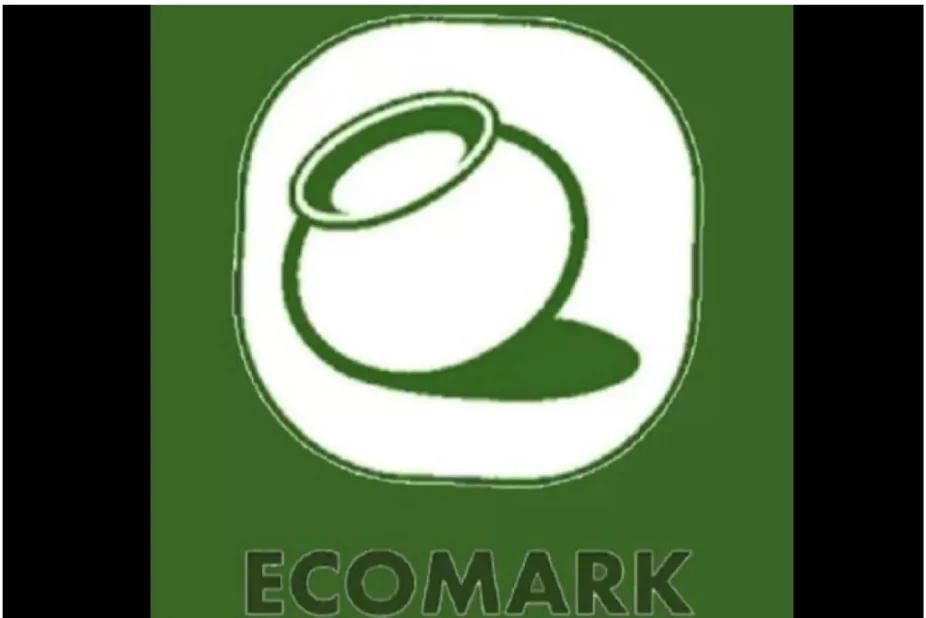Recasting its flagship scheme on labelling of eco-friendly products, recently, the Union Environment Ministry notified the Ecomark Rules 2024, almost a year after its draft rules were notified.

Ecomark Rules 2024
- The Ministry of Environment, Forest and Climate Change has notified the Ecomark Rules.
- Alignment: Part of the LiFE Mission (Lifestyle for Environment) launched by PM Narendra Modi in 2021.
- Replace: It replaces the Ecomark scheme of 1991.
- The scheme will be implemented by the Central Pollution Control Board (CPCB) in partnership with the Bureau of Indian Standards (BIS).
Enroll now for UPSC Online Course
Key Objectives of Ecomark Rules 2024
- Promoting Green Industries: The initiative encourages the production and consumption of eco-friendly products, promoting sustainability and energy/resource efficiency.
- Consumer Awareness: Ecomark aims to help consumers make informed purchase decisions by identifying products with lower environmental impacts.
- Circular Economy: Supports resource conservation and promotes recycling and reduction of waste, aligning with the ‘LIFE (Lifestyle for Environment)’ principle.
Eligibility Criteria for Ecomark
- Products must reduce pollution, minimise waste, or eliminate environmental emissions.
- Recyclability: Preference for products made from recycled materials or those that are recyclable.
- Conservation of Resources: Reducing the use of non-renewable energy and natural resources.
- Environmental Impact: Consideration of the production process, including raw material sourcing, emissions, and the use of recycled or non-hazardous substances.
Products Covered under Ecomark
- Cosmetics: Skin powder, including that for infants; tooth powder and toothpaste; skin cream; hair oil; shampoo; soap; hair cream; nail polish; aftershave lotion; shaving cream; cosmetic pencil; lipstick; etc.
- Soaps and Detergents: Environmentally friendly variants.
- Food Items: Edible oils, tea, coffee.
- Electric/Electronic Goods: TVs, refrigerators, food mixers, geysers, toasters, fans, etc.
- Textiles: Eco-friendly fabrics and garments.
Application and Verification Process
- Application: Manufacturers must apply for Ecomark to the Central Pollution Control Board (CPCB).
- Verification: CPCB, or a designated verifier, will assess compliance through a detailed report.
- Validity: The Ecomark will be valid for three years or until criteria changes. It can be renewed.
Check Out UPSC CSE Books From PW Store
Compliance and Monitoring
- Annual Report Submission: Holders of Ecomark must submit annual reports to the CPCB by May 31 each year.
- Penalty for False Information: The CPCB can suspend or cancel the mark if false information is provided, though the holder can appeal such decisions.
Institutional Framework
- Steering Committee: Headed by the Environment Secretary, comprising members from various ministries, CSIR, BIS, and CPCB.
- Role: The committee will recommend products, periodically review criteria, and support research for verifying environmental impacts.
Significance of Eco Mark
- Promotes Sustainable Development: Ecomark plays a key role in aligning industrial practices with sustainable development goals (SDGs).
- Encourages Eco-friendly Innovations: Push industries toward environmentally responsible technologies and processes that reduce resource consumption and pollution.
- Reduces Environmental Degradation: By incentivizing the production of eco-friendly products, helps in mitigating pollution, reducing waste, and lowering the carbon footprint across various sectors.
- Empowers Consumers: Empowers consumers to make informed and conscious decisions, enabling them to contribute to environmental conservation by choosing green products over conventional ones.
- Supports National and International Environmental Commitments:
- The scheme helps meet climate-related targets under international agreements, such as the Paris Agreement and Biodiversity Conservation Initiatives.
- Encourages Green Manufacturing: Motivates manufacturers to shift towards environmentally friendly production processes.
- Encourages the growth of green industries in India.
Check Out UPSC NCERT Textbooks From PW Store
Central Pollution Control Board (CPCB)
- Formed: It was constituted in September 1974 under the Water Prevention and Control of Pollution Act, 1974.
- Powers: It is also entrusted with the powers and functions under the Air (Prevention and Control of Pollution) Act, 1981.
- Principal Functions:
- To promote cleanliness of streams and wells in different areas of the States by prevention, control and abatement of water pollution, and
- To improve the quality of air and to prevent, control or abate air pollution in the country.
- It also provides technical services to the Ministry of Environment and Forests of the provisions of the Environment (Protection) Act, 1986.
|
About Ecomark Scheme
- Launch: The Ecomark Scheme was initiated by the Government of India in 1991.
- Administration: It is administered by the Bureau of Indian Standards (BIS), with oversight by the Ministry of Environment, Forests, and Climate Change.
- Symbol: The symbol for Ecomark is the ‘Matka’ (earthen pot), which represents eco-friendly products in the Indian market.
- Voluntary Basis: The scheme operates voluntarily, non-binding, allowing manufacturers to apply for the label.
- Compliance with Standards: Products displaying both the ECO Logo and ISI Mark indicate they meet environmental criteria as well as quality standards specified in relevant Indian Standards.
Enroll now for UPSC Online Classes
About Mission LiFE
- Mission LiFE was launched by the Honourable Prime Minister on October 20, 2022,.
- It promotes an eco-friendly lifestyle centred around mindful and purposeful use, rather than thoughtless and wasteful consumption.
- The concept of Mission LiFE, which stands for “LiFEStyle For Environment”, was first introduced by Prime Minister Modi at COP26 in Glasgow on November 1, 2021.
- Objective:
-
- To shift from a “use-and-dispose” economy to a circular economy based on conscious and intentional consumption.
- To encourage people to live in a sustainable and environmentally conscious way.
- To motivate at least 1 billion people to take individual and group actions to protect and conserve the environment between 2022 and 2028.
- It emboldens the spirit of the P3 model, i.e. Pro Planet People.
- It functions on the basic principles of ‘Lifestyle of the planet, for the planet and by the planet’.
|
![]() 4 Oct 2024
4 Oct 2024
